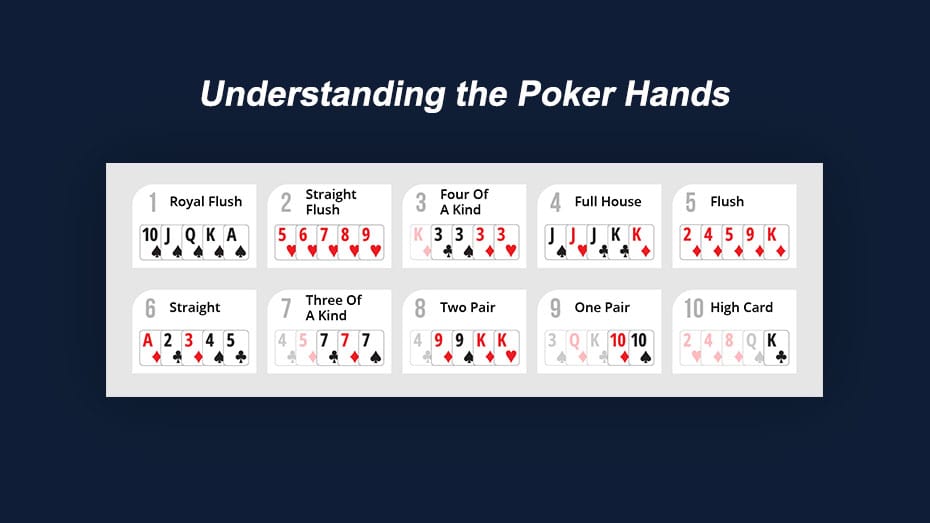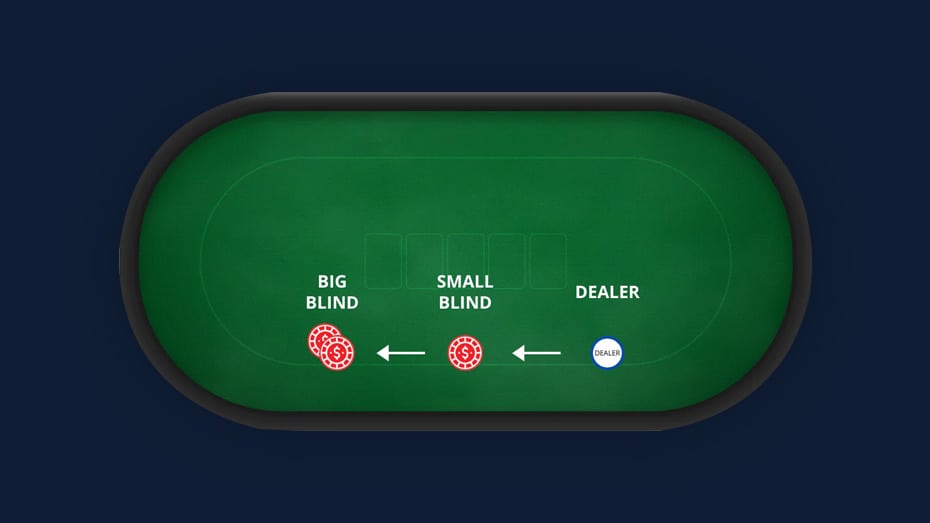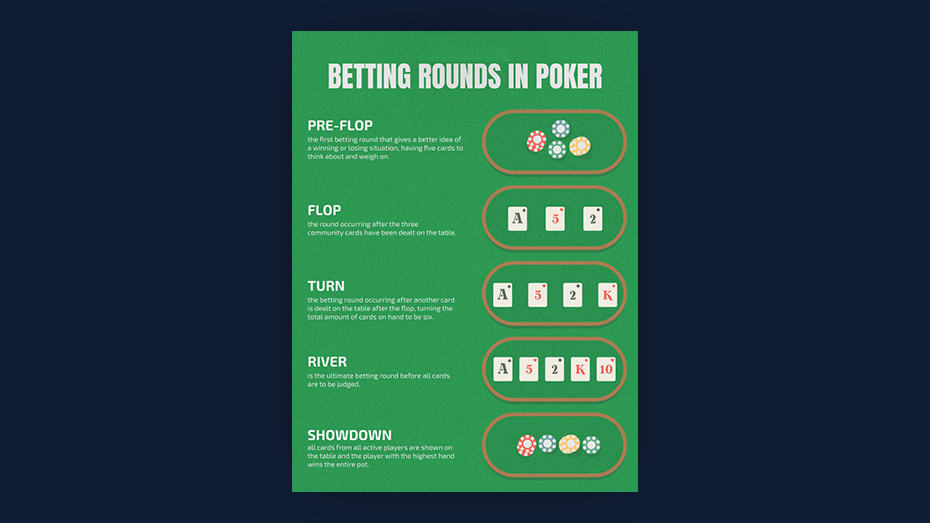Master The 747 Poker Rules & Learn How To Play Poker
Are you tired of struggling to beat the 747 Poker rules? Do you want to become a master at this popular game and win big? Look no further than this comprehensive guide to understanding the rules and strategies to beat the 747 Poker game.

In this article, we will cover everything from the basic rules of the game to advanced strategies and tips to give you the edge you need to come out on top. Whether you’re a beginner or an experienced player, you’ll find valuable information here that will help you take your game to the next level.
Understanding the Poker Rules
Before we dive into the strategies and tips to beat the 747 Poker game, it’s important to understand the basic rules of the game. 747 Poker is a variation of the popular game of Texas Hold’em. In this game, players are dealt seven cards instead of the standard two and must use five of these cards to make the best possible hand.

There are four rounds of betting in 747 Poker, with the first two rounds occurring before the first three cards are dealt (known as the flop), the third round after the flop, and the final round after the fourth card is dealt (known as the turn).
The Blinds and Ante
If you’re a poker enthusiast, you may have come across the terms “blinds” and “ante.” These two terminologies are essential in the game of poker, and understanding them is crucial to playing the game correctly. In this article, we will cover everything you need to know about blinds and ante.

Blinds in Poker
The blinds are forced bets that are made by two players sitting to the left of the dealer. The player sitting to the immediate left of the dealer places the small blind, while the player sitting next to them places the big blind.
Ante in Poker
The ante is a small bet that is made by every player at the beginning of each hand. The purpose of the ante is to create action and build the pot.
The Betting Rounds
In poker, the betting rounds refer to the periods of time during a hand when players can place bets, raises, or folds. The number of betting rounds in a game of poker can vary depending on the type of game being played, but most games have at least two betting rounds.

The most common betting rounds in poker are as follows:
The betting rounds in poker provide players with opportunities to make strategic decisions based on their hands and the actions of other players. Understanding the different betting rounds is an essential component of learning how to play poker.
Advanced Strategies for Texas Hold’em
Each player is dealt two cards facedown (known as “hole” or “pocket” cards), and then five community cards are dealt face-up in the middle of the table. The objective of the game is to make the best five-card hand possible using your two-hole cards and the five community cards.

Use Position to Your Advantage
The position is a crucial factor in Texas Hold’em. Being in a late position (i.e., the dealer or close to the dealer) gives you an advantage over your opponents as you get to act after they do. This allows you to make more informed decisions about your hand based on your opponent’s actions.
Use Pot Odds to Your Advantage
Pot odds are a crucial part of the Texas Hold’em strategy. They refer to the ratio of the size of the pot to the size of the bet. By understanding pot odds, you can make more informed decisions about whether to call or fold a bet. If the pot odds are in your favor, you should call the bet. If they’re not, you should fold.
Bluffing in Texas Hold’em
Bluffing is an essential part of Texas Hold’em. A good bluff can help you win a pot even when you don’t have the best hand. However, bluffing should be used sparingly and only when necessary. To be a successful bluffer, you need to be able to read your opponent’s behavior and make educated guesses about their hands based on their actions.
Tips and Tricks for Winning at Texas Hold’em
Understanding the rules of Texas Hold’em is crucial before you start playing. Each player in Texas Hold’em receives two concealed cards, or “hole cards,” at random. Five community cards are then dealt, five of which are placed face-up on the table by the dealer. To create the strongest five-card hand possible, players combine their hole cards and the communal cards.

Practice and Improve Your Skills
Texas Hold’em is a game of skill, and like any other game, it requires practice to improve. There are many ways to practice, including playing online or with friends. You can also read books, watch videos, or attend training sessions to learn new strategies and techniques.
Know When to Hold and When to Fold
Knowing when to hold and when to fold is crucial to winning at Texas Hold’em. If you have a strong hand, you should bet or raise it to increase the pot size. Learning to read your opponents’ body language and betting patterns can also help you determine when to hold or fold.
Manage Your Bankroll
Managing your bankroll is essential to winning at Texas Hold’em. You should only play with money that you can afford to lose, and you should never chase losses. Set a budget for your Texas Hold’em games, and stick to it. Don’t be tempted to increase your bets to win back the money you’ve lost.
Play Tight Aggressive
Playing tight aggressively means playing fewer hands but playing them aggressively. This strategy is recommended for beginners as it helps them avoid getting into tricky situations. When playing tight aggressive, you should only play premium hands and bet or raise when you have a strong hand.
Bluff Carefully
Bluffing is an essential part of Texas Hold’em, but it should be used sparingly. Bluffing involves making your opponents believe that you have a stronger hand than you actually do. However, if your opponents catch on to your bluff, it can be detrimental to your game. Bluff only when it makes sense, and make sure you have a backup plan in case your bluff is called.
Pay Attention to Your Position
Your position at the table can significantly impact your game in Texas Hold’em. The earlier your position, the less information you have, and you’ll have to make decisions based on incomplete information. Try to play more hands when you’re in a later position and play fewer hands when you’re in an earlier position.
Analyze Your Game
Analyzing your game is crucial to improving your skills and winning at Texas Hold’em. After each game, take some time to reflect on what you did well and what you could have done differently. You can also ask for feedback from other players or seek advice from experienced players.
Stay Calm and Focused
Staying calm and focused is essential to winning at Texas Hold’em. If you get emotional or distracted, you’re more likely to make mistakes and lose. Take breaks when you need them, and avoid playing when you’re tired or under the influence of drugs or alcohol.
Have Fun
There is always something new to learn about Texas Hold’em, so don’t stop educating yourself. Read books, watch videos, and analyze your play to find areas for improvement. Remember, winning at Texas Hold’em should be fun, so make sure to enjoy yourself at the table while following these tips and tricks.
FAQs
Conclusion
The 747 Poker Rules are a variation of the popular game of Texas Hold’em. While the basic rules of the game are the same, there are a few key differences, including the fact that players are dealt three private cards instead of two, and there are only three rounds of games.










